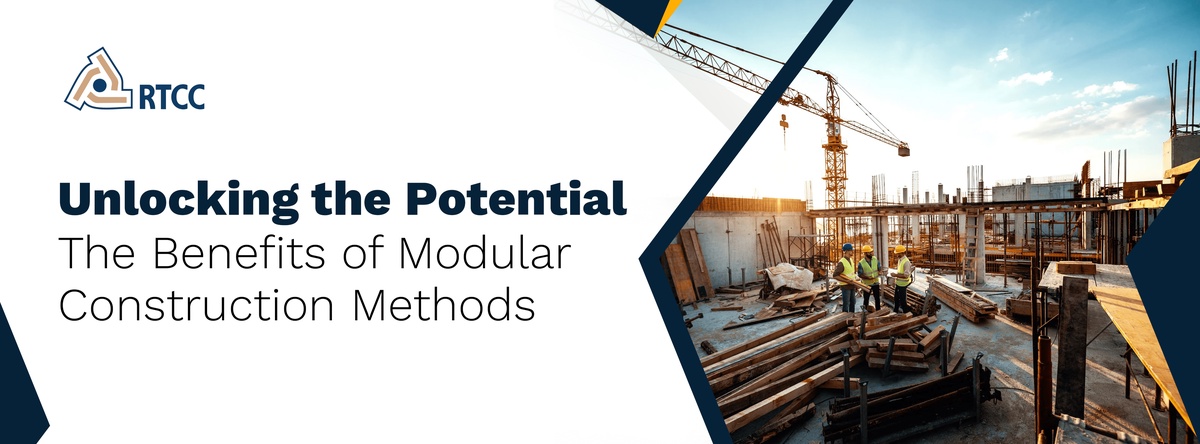In the constantly evolving realm of construction, progress hinges on the foundation of innovation. With the rising complexities of modern construction projects, the methods employed to address them must also evolve in tandem. Among the shining stars of contemporary construction is modular construction—an approach that's transforming the industry, offering a treasure trove of advantages. In this exploration, we'll unveil the benefits of modular construction methods, shedding light on a revolution that's reshaping how we build.
The Essence of Modular Construction
At its core, modular construction is the art of building structures through the assembly of pre-fabricated modules or sections, often manufactured in off-site facilities. These modules, once crafted to perfection, are transported to the construction site, where they are seamlessly integrated into the larger building. Think of it as the construction equivalent of assembling building blocks—only on a grander scale.
Speeding Up the Timeline
A standout characteristic of modular construction lies in its capacity to significantly truncate project timelines. In contrast, traditional construction projects frequently contend with delays caused by inclement weather, intricate on-site coordination challenges, and the laborious process of erecting structures from the ground up. In contrast, modular construction leverages the controlled environment of off-site manufacturing. Modules can be crafted simultaneously while on-site preparations are underway, cutting construction times by up to 50%.
Precision and Quality Assurance
In the world of construction, precision is paramount. Modular construction, with its rigorous manufacturing processes, ensures that every component meets exacting standards. Each module is crafted with meticulous attention to detail, benefiting from the expertise of specialized workers and the precision of cutting-edge machinery. This results in a higher level of quality assurance compared to traditional on-site construction, where variables such as weather and human error can introduce inconsistencies.
Economic Efficiency
The financial aspect of construction is often a top concern. Modular construction offers cost efficiencies at multiple levels. Reduced construction time means lower labor costs. The controlled environment of manufacturing minimizes material waste. And the precision of modular assembly reduces the need for expensive rework. All of these factors contribute to a more cost-effective construction process, allowing resources to be allocated more efficiently.
Eco-Friendly Construction
Sustainability is a cornerstone of contemporary construction, and modular methods align perfectly with this ethos. By optimizing material usage and minimizing waste, modular construction is inherently eco-friendly. Additionally, the controlled manufacturing environment allows for more efficient use of resources like energy and water. Furthermore, the ability to disassemble and reuse modular structures in different locations enhances the sustainability factor.
Minimized On-Site Disruptions
Construction sites often bring disruptions to neighboring areas, affecting businesses, residents, and local traffic. Modular construction helps mitigate these issues. Since the majority of construction activities occur off-site, on-site disruptions are minimized. Additionally, the assembly of modules is a faster and quieter process compared to traditional construction methods, further reducing on-site disturbances.
Enhanced Safety Measures
Safety is paramount in construction, and modular methods prioritize it at every turn. Off-site manufacturing facilities are equipped with advanced safety protocols and machinery, reducing the risk of accidents compared to traditional construction sites. Moreover, the reduced time spent on-site means fewer opportunities for accidents, enhancing overall safety.
Design Flexibility
Modular construction doesn't equate to a one-size-fits-all approach. In fact, it offers a high degree of design flexibility. Architects and designers can create custom modules to fit the unique requirements of each project. These modules can then be integrated seamlessly into the construction process, ensuring that the final structure aligns with the envisioned design.
Sustainability in Action: Case Studies
The benefits of modular construction aren't just theoretical; they're being put into practice with remarkable success in various projects worldwide.
Marriott's AC Hotel, New York City:
This 168-room hotel, constructed using modular methods, was assembled in just 12 days. The speed and efficiency of modular construction allowed the hotel to open its doors to guests significantly ahead of schedule.
Forest City's 32 Sixth Avenue, Brooklyn:
This 363-unit apartment complex is a testament to the eco-friendly aspects of modular construction. The modules used in this project were manufactured using recycled steel and concrete, aligning with sustainable construction principles.
Holiday Inn Express, Brisbane:
In the heart of Australia, a 15-story hotel was assembled using modular construction. This project showcased the precision and speed of modular methods, with each floor being completed in just four days.
The Road Ahead
As we navigate the ever-changing landscape of construction, modular methods shine as a beacon of innovation. They offer a blueprint for cost-effective, efficient, and sustainable construction practices. As technology continues to advance and environmental consciousness deepens, it’s the role of every construction company to play an increasingly prominent role in shaping the skylines of our cities.
In Conclusion
The advantages brought by modular construction methods extend beyond mere theory; they constitute a tangible transformation within the construction landscape. Speed, precision, cost-effectiveness, sustainability, and design adaptability are all integral components of this innovation. As the construction sector progresses, modular construction serves as a testament to the potent force of ingenuity, reshaping the very essence of how we construct. It transcends being a mere methodology; it emerges as an ongoing revolution, a testament to human creativity and the relentless pursuit of excellence in the field of construction.


No comments yet